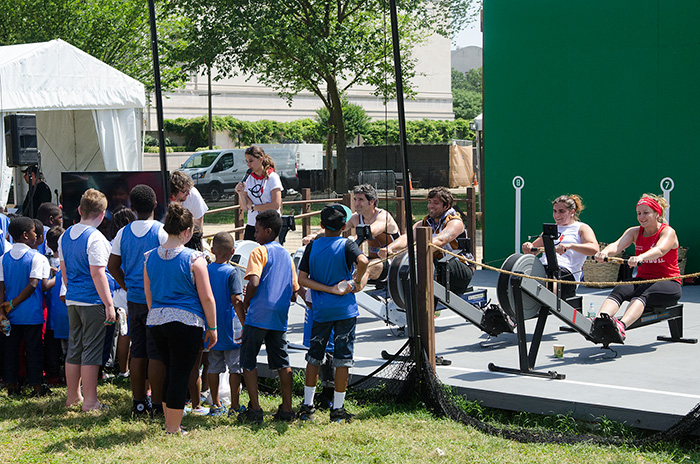Palabra de vasco: Honor and Basque Betting

When people play sports at the frontoia, the community comes together. As the center of cultural life in the Basque country, the frontoia (pilota handball court) is a place not only to watch games but to participate. They were traditionally built off the sides of churches, and playing pilota is still a common activity after a Sunday mass. These games normally have the full participation of the town. Those who are not swatting at the pilota ball are playing their own game: betting on the outcomes.
“It’s like being at the New York stock exchange,” described Xabier Berrueta, a Basque pilota expert, during a presentation at the 2016 Folklife Festival. “You’ll hear the game, but you’ll also hear the murmur of the bets.”
Basque sports and betting go hand in hand. Many Basques pride themselves in their competitive spirit, so anytime someone wants to best another, others are betting on who will win. Lorea Bilbao, head of the Department of Euskara and Culture, explained that many Basque sports evolved from physical labor of daily tasks turning competitive to get an advantage. For example, the Basque sport estropadak (rowing) came from fishermen who would race back to port with their fresh catch to get the best prices at market.
“The marketplace made for this kind of competition, but then along with it came the individual kind of money and betting that could be earned,” Lorea continued. “So the work turned into sport, and then the sport had betting alongside it.”

How to Make a Bet, Basque Style
Basque betting is different from American gambling. Unlike the American standard of betting against the house, Basque betting is more individual. You can’t just make a bet—you have to find someone else to bet against.
Betting starts with deciding on who will win: the red pilota team or the blue? Let’s say you want to bet $100 that the red pilota team will win because they are more experienced. You need to tell the middleman, who helps facilitate the bets, that you want to bet $100 on the favored red team and need someone to bet $80 on the blue team. If the red team wins, you get $80. If they lose, you have to pay $100.
Betting does not stop when the game begins. As the game goes on and the results become clearer, people start to hedge their bets. You can also bet on who will lose the game. If you are less confident, you might make a smaller bet that the red team will lose. While you might not gain as much if they win, it’s a guarantee that you will not lose as much.
Betting like this is an important part of the culture that surrounds the Basque country’s unique sports. And if betting is the lifeblood of Basque sports, honor is the lifeblood of Basque betting. While betting is ubiquitous around the world, Basque betting is different in that there is nothing signed.
“It is all on the honor code,” said rower Rikar Lamadrid. “It works on the belief that [the person you’re betting with] is a man of their word.” Nothing stops the person who lost from sneaking out, except the honor. Contracts are not needed.
“I am going to honor his bet, lose or win,” Xabier explained. “We are going to honor each other’s bet, so it’s that kind of chivalry.”
The idea of palabra de vasco, which means “a Basque’s word is good,” is a concrete promise. When the Basque say they are going to do something, they follow through.
Caroline Diemer is a Basque program intern for the Smithsonian Folklife Festival. She is a student at Wesleyan University majoring in archaeology and College of Letters, an interdisciplinary major of literature, history, and philosophy, with a concentration in Spanish. She also plays on the university volleyball team.

